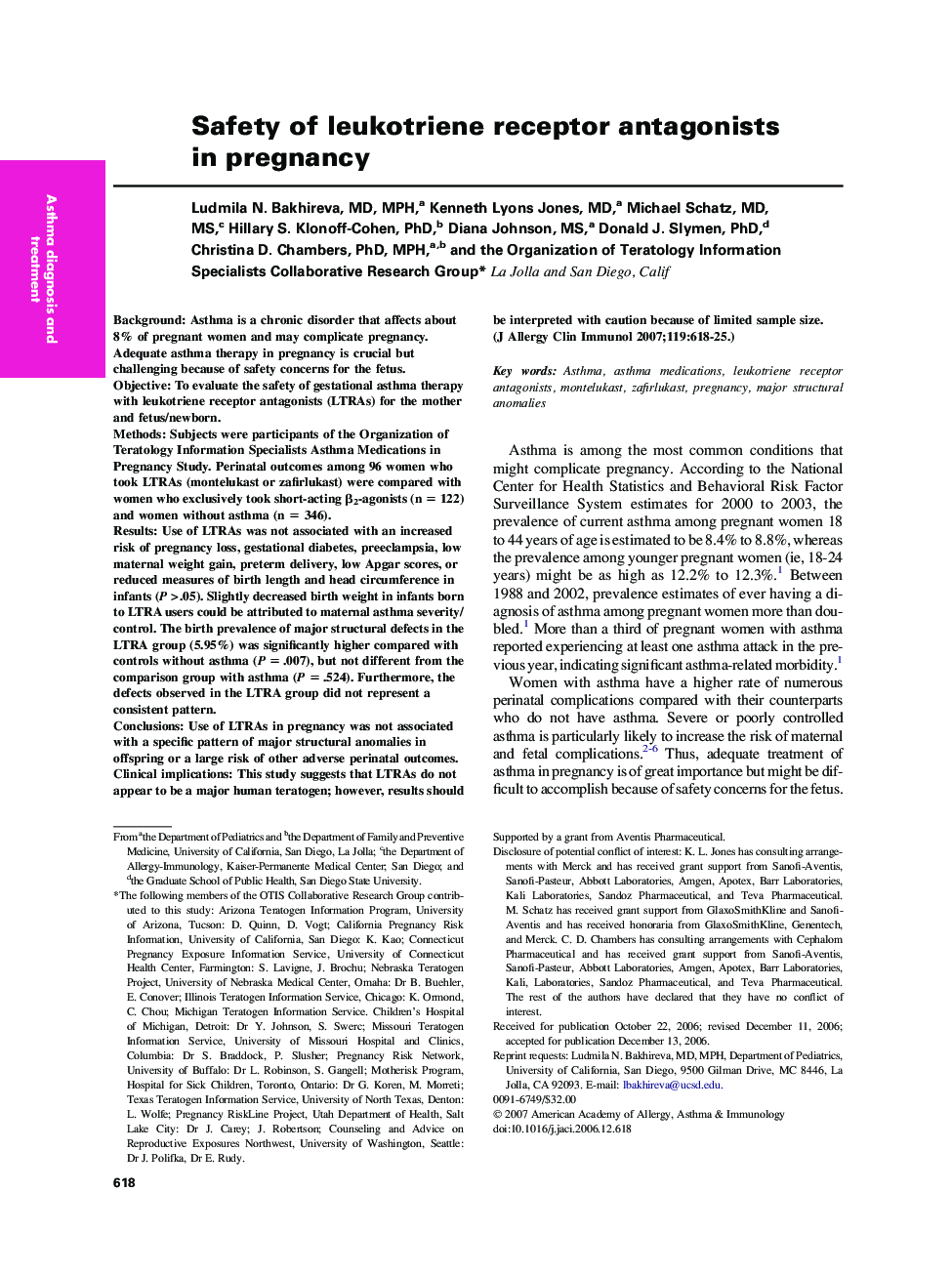| Article ID | Journal | Published Year | Pages | File Type |
|---|---|---|---|---|
| 3203409 | Journal of Allergy and Clinical Immunology | 2007 | 8 Pages |
BackgroundAsthma is a chronic disorder that affects about 8% of pregnant women and may complicate pregnancy. Adequate asthma therapy in pregnancy is crucial but challenging because of safety concerns for the fetus.ObjectiveTo evaluate the safety of gestational asthma therapy with leukotriene receptor antagonists (LTRAs) for the mother and fetus/newborn.MethodsSubjects were participants of the Organization of Teratology Information Specialists Asthma Medications in Pregnancy Study. Perinatal outcomes among 96 women who took LTRAs (montelukast or zafirlukast) were compared with women who exclusively took short-acting β2-agonists (n = 122) and women without asthma (n = 346).ResultsUse of LTRAs was not associated with an increased risk of pregnancy loss, gestational diabetes, preeclampsia, low maternal weight gain, preterm delivery, low Apgar scores, or reduced measures of birth length and head circumference in infants (P > .05). Slightly decreased birth weight in infants born to LTRA users could be attributed to maternal asthma severity/control. The birth prevalence of major structural defects in the LTRA group (5.95%) was significantly higher compared with controls without asthma (P = .007), but not different from the comparison group with asthma (P = .524). Furthermore, the defects observed in the LTRA group did not represent a consistent pattern.ConclusionsUse of LTRAs in pregnancy was not associated with a specific pattern of major structural anomalies in offspring or a large risk of other adverse perinatal outcomes.Clinical implicationsThis study suggests that LTRAs do not appear to be a major human teratogen; however, results should be interpreted with caution because of limited sample size.
